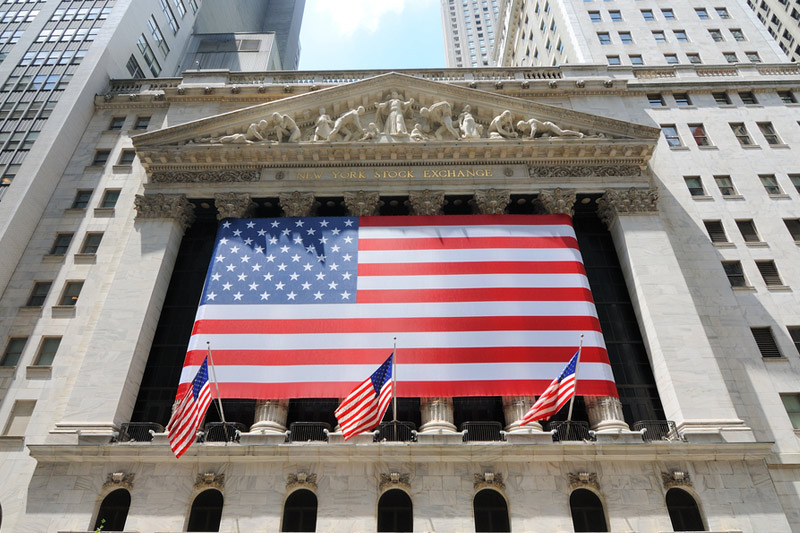Australian shares are expected to open higher today, backed by a rally on Wall Street overnight, which saw the Dow Jones gain 0.3%, the S&P 500 rise 0.6% and the Nasdaq add 0.6%.
Tariffs announced
Overnight the markets reacted to a social media announcement from the President-elect that promised tariffs on Canada, Mexico – a sort of quid pro quo for perceived lack of action on the northern and southern borders of the US – and China, because, well, it’s China.
Technology stocks drove the gains in the US, with Microsoft (NASDAQ:MSFT) climbing 2.2%, perhaps because this is the sector deemed least impacted by the incoming administration’s tariff-setting.
The tech gains offset losses for automakers like Ford and General Motors (NYSE:GM) that fell on the news, because of concerns over supply chain disruptions stemming from said tariffs.
Monthly CPI
The Australian Bureau of Statistics is set to release its monthly consumer price index (CPI) at 11:30 am AEDT.
A Reuters poll indicates CPI likely rose 2.3% year-on-year in October, up from 2.1% in September. This data will provide further insights into inflation trends as markets assess the Reserve Bank of Australia's monetary policy outlook.
Labour market tightening
SEEK’s Labour Market Balance Report reveals a tighter Australian labour market since late 2023, reversing a loosening trend that began in 2022.
Conditions remain tighter than in 2019, with some key indicators showing improvement this year.
The employment-to-population ratio has edged higher, average hours worked have risen from recent lows and underemployment has slightly decreased.
While overall demand for workers has eased, the slowdown is uneven across sectors. Job ads in Healthcare and Medical (TASE:PMCN), Community Services, and Transport and Logistics remain elevated, reflecting continued demand.
Conversely, listings in higher-paying sectors such as Information Technology and Banking have dropped below pre-COVID levels.
Job seekers face growing challenges, with increased competition and an average search time that has lengthened by 10 weeks. Despite these difficulties, SEEK’s data suggests that job opportunities persist, though they are less abundant than during the labour market’s peak.
Currencies and commodities
Currencies saw mixed movements overnight as markets reacted to US President-elect Donald Trump’s tariff pledges and diverging economic data.
The Euro weakened, falling from US$1.0544 to US$1.0456, and settled near US$1.0480 at the US close.
The Aussie dollar slipped, trading from US$0.6508 to US$0.6447 before stabilising at US$0.6460.
The yen, however, rose from 154.21 to 153.02 yen per US dollar, ending near 153.10 yen.
Commodity prices showed mixed movements. Brent crude fell 0.3% to US$72.81 per barrel, while gold edged up 0.1% to US$2,621.30 an ounce, supported by optimism over a potential Israel-Hezbollah ceasefire.
Iron ore prices remained stable at US$102.06 a tonne, bolstered by hopes of a Chinese central bank rate cut amid yuan weakness. Base metals fell as markets digested the potential impact of US-China tariffs, with copper sliding 1.3%.
On the domestic front, several major companies, including Core Lithium and Liontown Resources (ASX:ASX:LTR), are holding annual general meetings today while global markets await key US economic data releases, including GDP, durable goods orders and personal spending figures.
Market snapshot
- ASX 200 futures: +0.4% to 8,424 points.
- Australian dollar: -0.7% at 64.60 US cents.
- S&P 500: +0.5% to 6,014 points.
- Nasdaq: +0.5% to 19,147 points.
- FTSE: -0.4% to 8,258 points.
- EuroStoxx: -0.8% to 494 points.
- Spot gold: +0.2% to $US2,630/ounce.
- Brent crude: -0.5% to $US72.62/barrel.
- Iron ore: +0.2% to $US102.75/tonne.
- Bitcoin: -2.3% to $US91,522.
Source: ABC
